#julius lester
Explore tagged Tumblr posts
Text
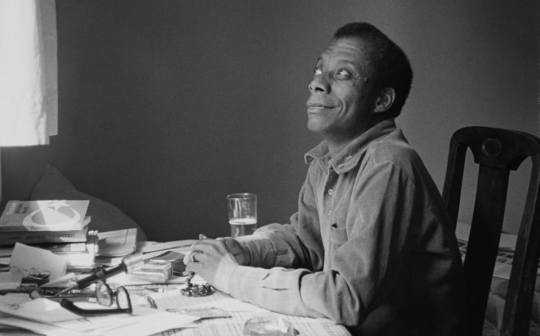
Q: You have been politically engaged, but you have never succumbed to ideology, which has devoured some of the best black writers of my generation.
A: Perhaps I did not succumb to ideology, as you put it, because I have never seen myself as a spokesman. I am a witness. In the church in which I was raised you were supposed to bear witness to the truth. Now, later on, you wonder what in the world the truth is, but you do know what a lie is.
—James Baldwin, James Baldwin: Reflections of a Maverick, New York Times, May 27, 1984 (interview with Julius Lester)
[Robert Scott Horton]
34 notes
·
View notes
Text
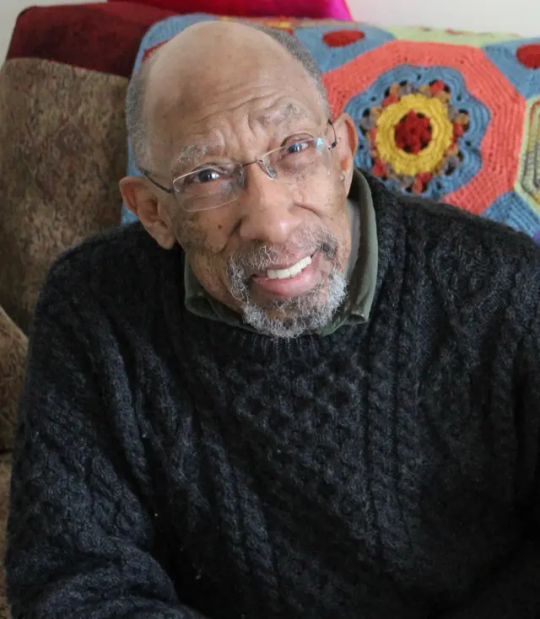
Julius Lester, whose literature explored African American life.
9 notes
·
View notes
Text
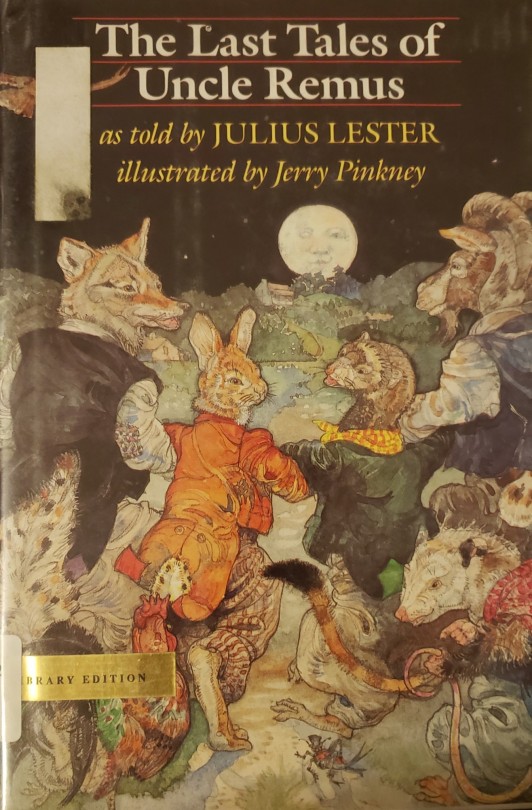
The Last Tales of Uncle Remus
As Told By: Julius Lester -- Art: Jerry Pinkney This Edition: 1994 -- Original stories recorded in the late 19th century
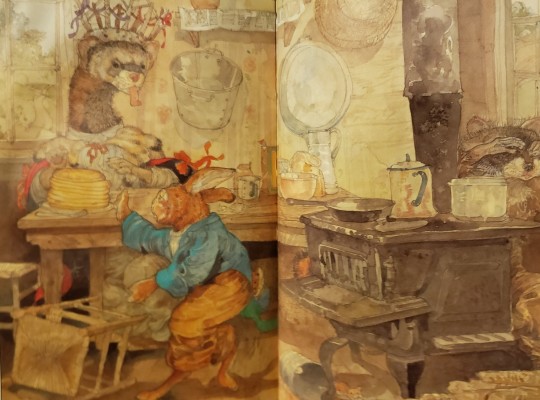
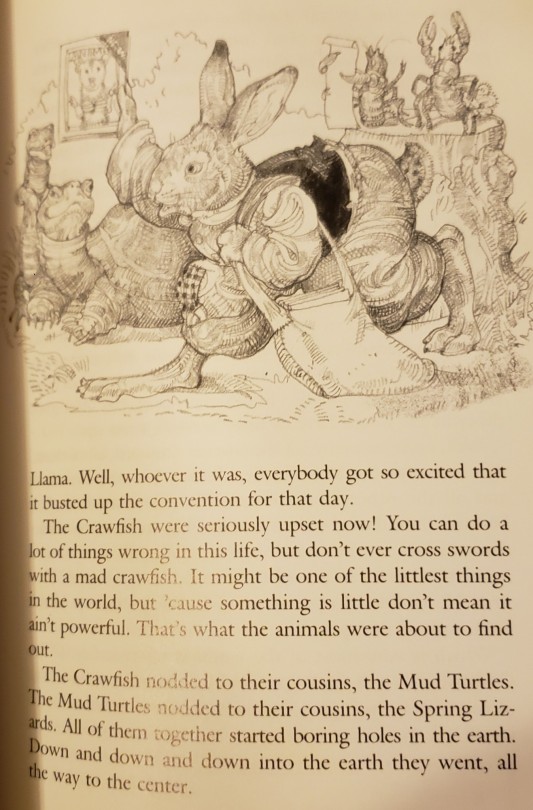
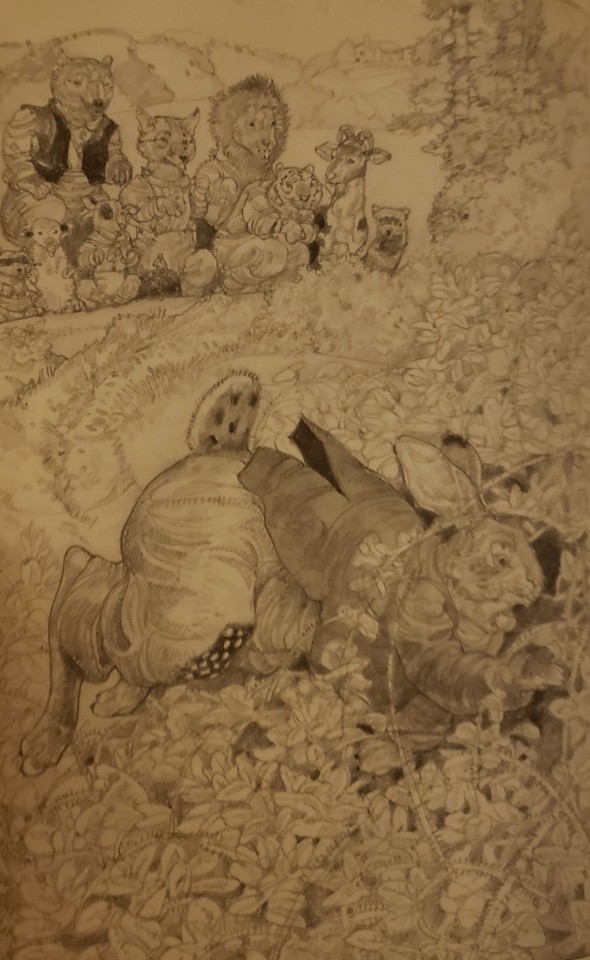
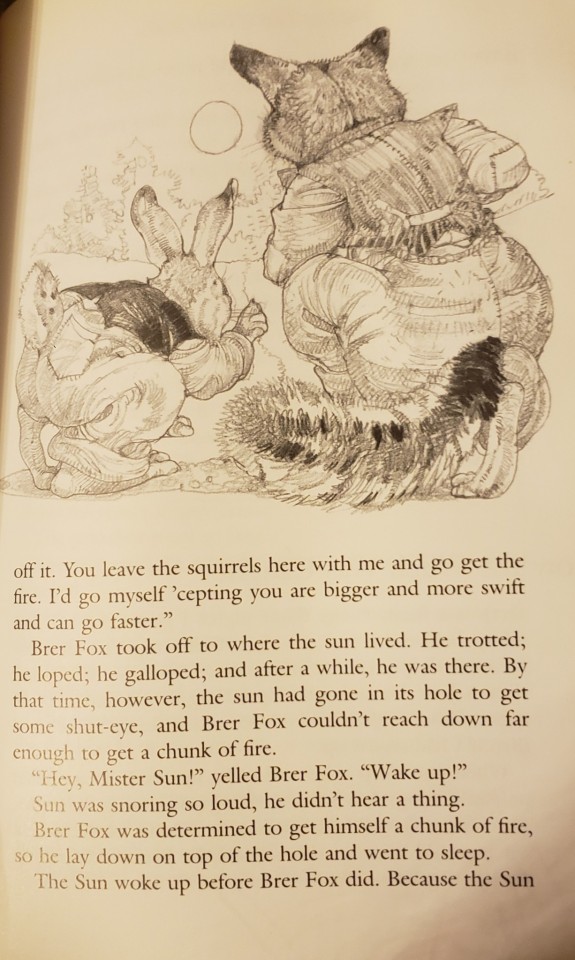
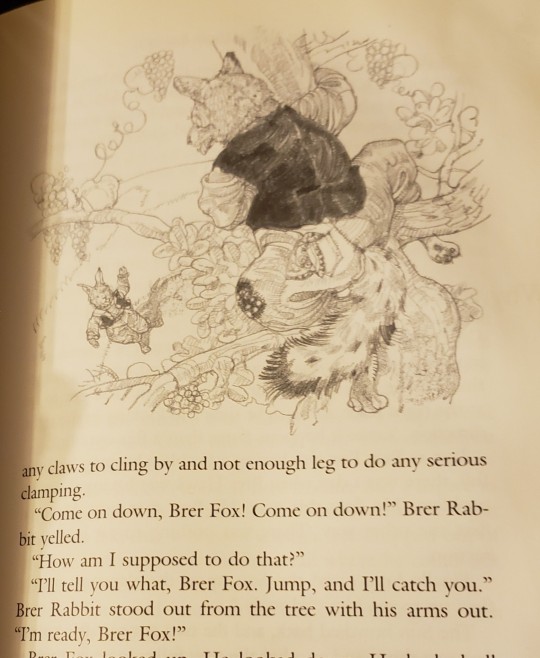
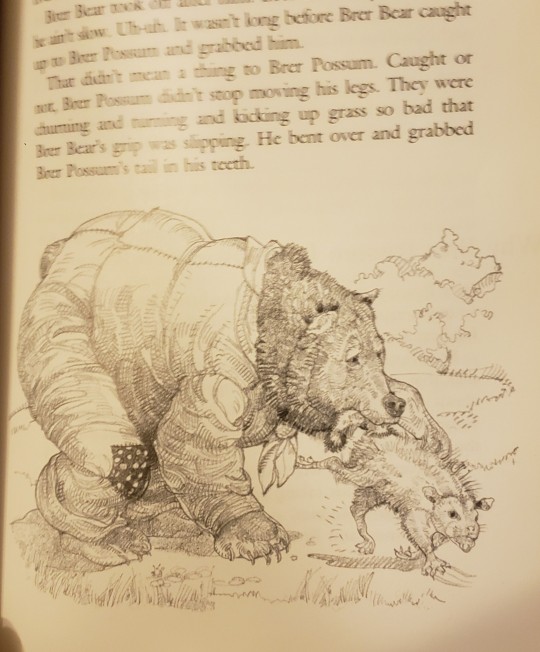
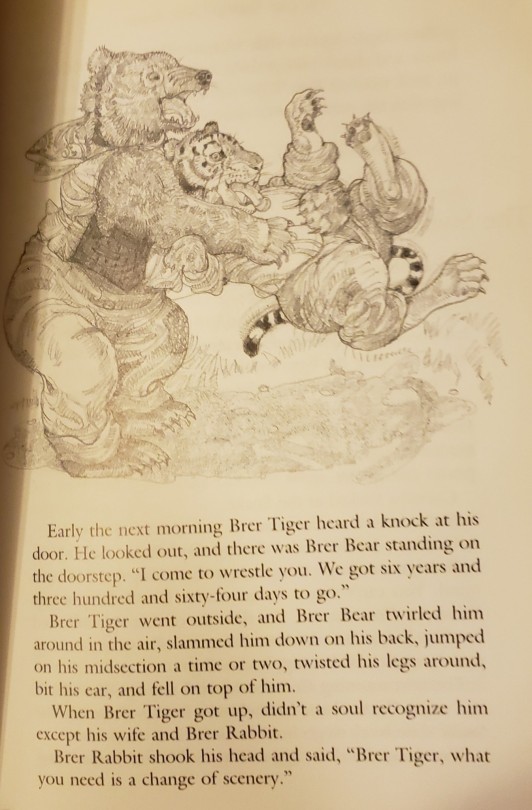
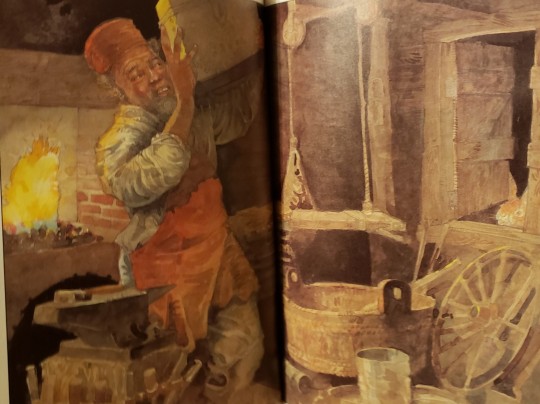
#uncle remus#brer rabbit#the last tales of uncle remus#brer fox#brer bear#brer tiger#folklore#1990s#Julius Lester#Jerry Pinkney#picture books#Joel Chandler Harris#kid books#children's books#kidlit
10 notes
·
View notes
Text

happy ides of march everyone I hope you get in a good stabbing
#julius ceaser#julius caesar#ides of march#william shakespeare#rome#brutus#tags#dan and phil#phan#dnp#phil lester#dan howell#daniel howell#amazingphil#dapg
439 notes
·
View notes
Text

House (1970) built for himself in Los Angeles, CA, USA, by Lester Wertheimer. Photo by Julius Shulman.
156 notes
·
View notes
Text
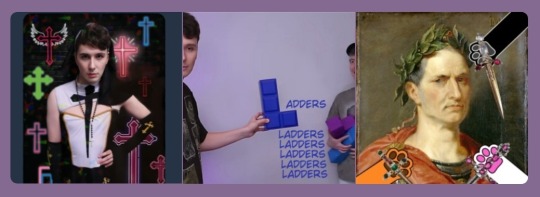

Dan and Phil killed Boop Caesar
24 notes
·
View notes
Text
06.08.24 Rebekah Heller's Bassoon Ensemble perform The Holy Presence of Joan d’Arc, by Julius Eastman, arranged for bassoons by Rebekah. Performers included Maribel Alonso, Trey Coudret, Alexander Davis, Ryan Ghassemi, Joy Guidry, Stephanie Patterson, Sara Schoenbeck, Jamael Smith, Joseph Swift and Francisca Wright. Conducted by Lester St Louis, performed at the Fridman Gallery NYC.
#Maribel Alonso#Trey Coudret#Alexander Davis#Ryan Ghassemi#Joy Guidry#Stephanie Patterson#Sara Schoenbeck#Jamael Smith#Joseph Swift#Francisca Wright#Rebekah Heller#bassoon#Julius Eastman#Lester St Louis#Fridman Gallery
13 notes
·
View notes
Text
The Good Fight Season 5 preview
#diane lockhart#christine baranski#queen baranski#the good fight#audra mcdonald#liz reddick#delroy lindo#adrian boseman#marissa gold#sarah steele#carmen moyo#charmaine bingwa#jay dipersia#nyambi nyambi#julius cain#michael boatman#wayne brady#del cooper#wallace shawn#charles lester#tony plana#oscar levi#preview#season 5#video#cbs#paramount plus
3 notes
·
View notes
Note
oh your a fire emblem fan? Name every fire emblem character
bet.
Fire Emblem: Shadow Dragon and the Blade of Light (+ remake and sequel)
playable: marth, caeda, jagen, cain, abel, draug, gordin, wrys, ogma, barst, bord, cord, castor, darros, julian, lena, navarre, merric, matthis, hardin, wolf, sedgar, roshea, vyland, wendell, rickard, bantu, caesar, radd, roger, jeorge, maria, minerva, linde, jake, midia, dolph, macellan, tomas, boah, beck, astram, palla, catria, est, arran, samson, xane, tiki, lorenz (FE1), elice, gotoh, frey, norne, athena, horace, etzel, ymir, nagi
non-playable: mostyn, malledus, anna (and every following iteration that isnt playable), nyna, aurelys, anri, cornelius, liza, miloah, naga (let's slash out future iterations too), adrah, artemis, cartas, marion, iote, ordwin, ludwik, jiol, camus, michalis, gharnef, medeus, gazzak, gomer, hyman, bentheon, merach, emereus, harmein, kannival, mannu, zharov, khozen, volzhin, heimler, grigas, hollstadt, morzas, sternlin, orridyon, xemcel (me when i'm an incel with pronouns), rumel, rucke, gail, toras, dahl, yodel, eibel, willow, nehring
Fire Emblem Gaiden + Echoes
playable: alm, lukas, gray, tobin, kliff, silque, clair, clive, forsyth, python, luthier, mathilda, delthea, tatiana, zeke, mycen, celica, mae, boey, genny, saber, valbar, kamui, leon, atlas, jesse, sonya, deen, nomah, faye, fernand, emma, shade, yuzu, randal
non-playable: mila, duma, rudolf, massena, jedah, marla, hestia, dolth, jamil, desaix, slayde, barth, garth, lawson, gazelle, zakson, blake, wolff, grieth, mikhail, garcia, tatarrah, nuibaba, seazas, xaizor, magnus, mueller, jerome, gharn, hades, argentum, aurum, cerberus, naberius, liprica, halcyon, lima IV, irma, berkut, rinea, forneus, jarth
Fire Emblem: Genealogy of the Holy War
playable: sigurd, alec, naoise, arden, azelle, lex, quan, ethlyn, finn, midir, edain, dew, ayra, jamke, deirdre, chulainn, lachesis, beowolf, lewyn, silvia, erinys, tailtiu, claud, brigid, seliph, lana/muirne, larcei/creidne, scáthach/dalvin, oifey, diarmuid/tristan, lester/deimne, julia, fee/hermina, arthur/amid, iuchar, iucharba, shannan, patty/daisy, leif, nanna/jeanne, finn, ares, lene/laylea, tine/linda, febail/asaello, ced/hawk, hannibal, coirpre/charlot, altena
non-playable: oifey, arvis, shannan, mariccle, mananan, eldigan, grahnye, manfroy, sandima, kurth, victor, cigyun, lahna, dimaggio, gerrard, filat, munnir, cimbaeth, batu, imuka, eve, alva, eva, elliot, philip, boldor, macbeth, voltz, clement, zyne, chagall, jacobi, papilio, pizarl, dobarl, myos, daccar, annand, cuvuli, pamela, díthorba, donovan, lamia, slayder, vaja, byron, ring, andrey, lombard, reptor, travant, magorn, azmur, aida, lewyn/forseti, julius, manfroy, arvis, bloom, hilda, ishtar, ishtore, harold, schmidt, danann, liza, vampa, fetra, eliu, bramsel, jabarro, muhammad, ovo, brian, scipio, kutuzov, coruta, maikov, kanatz, disler, travant, arion, jake, musar, judah, ridale, morigan, zagam, robert, boyce, rodan, felipe, palmark, yupheel, fisher, daggon, baran, meng, maybell, bleg, mus, bovis, tigris, lepus, draco, anguilla, equus, ovis, simia, gallus, canis, porcus, loptous, forseti, salamander, gair, maera, heim, baldr, hoðr, od, njörun, dáinn, n��l, ullr, fjalar, thrud, ced, bragi, yudu
Fire Emblem: Thracia 776
playable: leif, finn, eyvel, osian, halvan, dagdar, tanya, marty, ronan, lifis, safy, brighton, machyua, lara, fergus, karin, dalsin, asbel, nanna, hicks, shiva, carrion, selfina, cain, alva, robert, fred, olwen, mareeta, salem, perne, troude, tina, glade, deen, eda, homer, linoan, ralf, ilios, sleuf, sara, miranda, shannam, misha, xavier, amalda, conomor, diarmuid, saias, ced, galzus
non-playable: august, dryas, raydrik, veld, manfroy, julius, ishtar, reinhardt, kempf, bloom, seliph, julia, lewyn, travant, arion, altena, hannibal, coirpre, weissman, bucks, lobos, bandol, truman, aizenau, rumei, merlock, dobalzark, largo, gomes, oltof, cullough, baráth, seimetol, fraus, zaom, rist, baldack, paulus, makroy, codda, aihiman, brook, mua, nicolov, mueller, rinecok, palman, gustav, wolff, cowen, alfan, farden, coruta, zile, mus, bovis, tigris, draco, canis, porcus, yubel, romeo, carl
Fire Emblem: The Binding Blade
playable: roy, marcus, alen, lance, wolt, bors, merlinus, elen, dieck, wade, lot, shanna, chad, lugh, clarine, rutger, saul, dorothy, sue, zelot, trec, noah, astolfo, lilina, gwendolyn, barthe, ogier, fir, sin, gonzalez, geese, klein, thea, larum, echidna, elffin, bartre, raigh, cath, melady, perceval, cecilia, sophia, igrene, garret, fae, hugh, zeiss, douglas, niime, juno, dayan, yoder, karel
non-playable: damas, rude, slater, erik, dory, wagner, devias, leygance, henning, scott, nord, zinc, scouran, oro, robarts, morgan, ain, gelero, flaer, randy, maggie, rose, ohtz, raeth, narcian, windham, arcard, martel, monke, sigune, gel, roartz, teck, thoril, brakul, kudoka, maral, kabul, chan, murdock, galle, pereth, zephiel, brunnya, jahn, idunn, guinivere, mordred
Fire Emblem: The Blazing Blade
playable: mark, lyn, sain, kent, florina, wil, dorcas, serra, erk, rath, matthew, nils, lucius, wallace, eliwood, marcus, lowen, rebecca, bartre, hector, oswin, guy, merlinus, priscilla, raven, canas, dart, fiora, legault, ninian, isadora, heath, hawkeye, geitz, pent, louise, karel, harken, nino, jaffar, vaida, renault, athos, farina, karla
non-playable: eleanora, leila, elbert, kishuna, darin, nergal, uther, lloyd, linus, brendan, limstella, sonia, ursula, zephiel, guinivere, bramimond, batta, zugu, glass, migal, carjiga, bug, bool, heintz, beyard, yogi, eagler, lundgren, groznyi, wire, zagan, boies, puzon, erik, sealen, bauker, bernard, fargus, damian, zoldam, uhai, aion, teodor, cameron, oleg, eubans, jasmine, paul, pascal, kenneth, jerme, maxime, georg, kaim, denning, fire dragon, desmond, hellene, murdock, natalie, ephidel, jan, hausen, marquess araphen, helman, jake, igor, fae, sophia, roy, lilina, reissmann, roland, durban
Fire Emblem: The Sacred Stones
playable: eirika, ephraim, seth, franz, gilliam, vanessa, moulder, ross, garcia, neimi, colm, artur, lute, natasha, joshua, forde, kyle, tana, amelia, innes, gerik, tethys, marisa, ewan, duessel, cormag, l'arachel, dozla, saleh, rennac, knoll, myrrh, syrene, orson, lyon
non-playable: fomortiis, vigarde, mansel, morva, pablo, klimt, dara, carlyle, o'neill, breguet, bone, bazba, bandit, saar, zonta, novala, murray, tirado, binks, gheb, aias, beran, saaga, nada kuya, melina, zethla, monica, zabba, mcgregor, caellach, riev, ismaire, selena, glen, hayden, valter, renais
Fire Emblem: Path of Radiance
playable: ike, titania, boyd, oscar, rhys, shinon, gatrie, soren, mia, ilyana, mist, rolf, marcia, lethe, mordecai, volke, kieran, brom, nephenee, zihark, sothe, jill, astrid, makalov, stefan, tormod, muarim, devdan, tanith, reyson, janaff, ulki, calill, tauroneo, ranulf, haar, bastian, lucia, geoffrey, largo, elincia, ena, nasir, naesala, tibarn, giffca
playable in a weird way: oliver, shiharam, petrine, bryce, ashnard
non-playable: black knight, caineghis, dheginsea, gareth, greil, izuka, kurthnaga, leanne, lorazieh, nealuchi, sanaki, sigrun, lotz, zawana, ikanau, havetti, maijin, dakova, emil, balmer, kamura, nedata, kotaff, danomill, mackoya, seeker, norris, gashilama, kimaarsi, kayachey, homasa, kasatai, schaeffer, tomenami, lillia, rikard, gromell, bertram, hafedd, heddwyn, ramon, lekain, hetzel, rajaion
Fire Emblem: Radiant Dawn (will avoid repeats from PoR)
playable: micaiah, edward, leonardo, nolan, laura, aran, meg, volug, fiona, vika, nailah, rafiel, heather, danved, lyre, kyza, skrimir, pelleas, renning, lehran
non-playable: agony, aimee, almedha, amy, ashunera, alder, ashera, burton, callum, catalena, daniel, djur, goran, isaiya, istvan, jarod, jorge, kezhda, laverton, levail, lombroso, ludveck, maiel, maraj, muston, nico, numida, pain, pugo, radmin, roark, rolf's mother, rommit, seliora, septimus, sephiran, sergei, silvano, tashoria, valtome, veyona, wystan, yeardley, yune, yuma, zaitan, zeffren, zelgius
Fire Emblem Awakening
playable: chrom, robin, lissa, frederick, sully, virion, stahl, vaike, miriel, sumia, kellam, donnel, lon'qu, ricken, maribelle, panne, gaius, cordelia, gregor, nowi, libra, tharja, olivia, cherche, henry, say'ri, tiki, basilio, flavia, gangrel, walhart, emmeryn, yen'fay, aversa, priam, lucina, owain, inigo, brady, kjelle, cynthia, severa, gerome, morgan, yarne, laurent, noire, nah
non-playable: validar, naga, grima, first exalt, garrick, phila, raimi, roddick, orton, victor, hierarch, vasto, chalard, campari, vincent, mustafa, dalton, ke'ri, gecko, jamil, xalbador, cassius, ruger, holland, nelson, morristan, gyral, dalen, nombry, ezra, ignatius, farber, cervantes, pheros, excellus, algol, mus, bovis, tigris, lepus, draco, anguilla, equus, ovis, simia, gallus, canis, porcus, zanth, ardri, old hubba
Fire Emblem Fates
playable: corrin, azura, felicia, jakob, kaze, silas, mozu, shura, izana, ryoma, hinoka, takumi, sakura, hana, subaki, saizo, orochi, rinkah, kagero, oboro, hinata, hayato, setsuna, azama, kaden, reina, yukimura, scarlet, xander, camilla, leo, elise, effie, nyx, arthur, charlotte, benny, beruka, selena (formerly severa), niles, odin (formerly owain), peri, laslow (formerly inigo), keaton, flora, gunter, fuga, kana, shigure, dwyer, midori, sophie, shiro, kiragi, caeldori, asugi, hisame, rhajat, mitama, selkie, siegbert, forrest, ignatius, nina, ophelia, percy, soleil, velouria
playable in a weird way: daniela, lloyd, llewelyn, haitaka, kumagera, nichol, candace, daichi, funke, senno, zhara, tarba, gazak
non-playable: garon, iago, mikoto, lilith, arete, sumeragi, anankos, kilma, hans, kotaro, omozu, anthony, zola, rainbow sage, katerina, ikona, layla, cassita, cadros
Fire Emblem: Three Houses
playable: byleth, sothis, edelgard, hubert, ferdinand, linhardt, caspar, bernadetta, dorothea, petra, dimitri, dedue, felix, ashe, sylvain, mercedes, annette, ingrid, claude, lorenz, raphael, ignatz, lysithea, marianne, hilda, leonie, yuri, balthus, constance, hapi, rhea, seteth, flayn, hanneman, manuela, gilbert, alois, catherine, shamir, cyril, jeralt, monica, tomas, jeritza, anna, aelfric
special little guys: gatekeeper, abysskeeper
non-playable: metodey, thales, solon, kronya, cornelia, myson, odesse, bias, chilon, pittacus, kostas, miklan, pallardó, acheron, baron dominic, baron ochs, christophe, claudia, count charon, count ordelia, count rowe, derick, duke gerth, emile, erwin, fleche, glenn, godfrey, grégoire, gwendal, holst, ionius ix, judith, klaus i, kyphon, ladislava, lambert, leopold, lonato, loog, ludwig, lycaon i, lycaon iii, margrave edmund, marquis vestra, matthias, nader, oswald, pan, patricia, randolph, rodrigue, rufus, tiana, volkhard, waldemar, wilhelm i, viscount kleiman, seiros, sitri, nemesis, indech, macuil, blaiddyd, charon, daphnel, dominic, fraldarius, gautier, gloucester, goneril, lamine, riegan, maurice, aubin, chevalier, noa, timotheos, luca, iris, chevalier, bernhard, gajus, wilhelm, marcelle, simone
Fire Emblem Engage
playable: alear, vander, clanne, framme, alfred, boucheron, etie, céline, louis, chloé, yunaka, alcryst, citrinne, lapis, diamant, amber, jade, ivy, zelkov, kagetsu, fogado, bunet, pandreo, timerra, merrin, panette, hortensia, seadall, rosado, goldmary, lindon, saphir, mauvier, veyle, jean, nel, nil, zelestia, gregory, madeline, rafal
non-playable: sombron, hyacinth, zephia, griss, marni, lumera, sommie, ève, morion, seforia, nelucce, teronda, rodine, abyme, mitan, totchie, tetchie, durthon, anisse, calney, pinet, sean, anje
while the emblems are said to be different from the canon version, i will be leaving them out since they're pretty much the same as the already listed characters
OCs from the Archanea Saga: frost, dice, malice, belf, roberto, reiden
OCs from the Cipher cards that aren't in the Echoes DLC: alice, valjean, niamh, poe
OCs from the warriors spinoffs not dividing them by playability because i dont care: rowan, lianna, darios, yelena, oskar, velezark, SHEZ!, arval/epimenides, berling, getz, lazley, simon, adrienne, jetz, baron gillingr, baron barnabas, viscount essar, viscount lochin, viscount hymir, viscount menja, viscount fenja, viscount mateus, viscount elidure, viscount gideon, count duval, marquis erebus, baron pryderi, baron mateus, viscount brennius, yvette, viscount enid, count geraint, baron müller, viscount siward, viscount albany, viscount burgundy, leif, anaximandros, dolofonos, the immaculate one, anselma, victoria, gunnar, krouffer, banfig, kite, morianne, laetitia, duke ifan, zoltan
OCs from that fuckass gacha game
playable in some way: kiran, alfonse, sharena, anna, gustav, henriette, askr, ash, bruno, veronica, letizia, embla, elm, nifl, fjorm, gunnthrá, hríd, ylgr, múspell, surtr, laegjarn, laevatein, helbindi, hel, eir, ymir, líf, thrasir, ganglöt, loki, thórr, peony, mirabilis, plumeria, triandra, freyr, freyja, eitr, ginnungagap, niðavellir, reginn, ótr, fáfnir, dagr, nótt, eitri, seiðr, heiðr, gullveig, kvasir, nerþuz, ratatoskr, heiðrún, eikþyrnir
non-playable: feh That Fucking Bird That I Hate, fehnix, hvergel, menja, angrboða, alfaðör, alfrik, billingr, dvalinn, grer, þjazi, veðrfölnir, njörðr, hræsvelgr, níðhöggr, læraðr
i am not listing the fucking alts. you get the point. never test me again.
#ask#fire emblem#yeah im not tagging all that#i tried to avoid dupes but if it happened and you noticed uhhh go fuck yourself
43 notes
·
View notes
Note
amoset thoughts and headcanons and feelings and and and please i love them so much goddd please please please pleasepl
ahhhhhh I love amoset SO MUCH
There is something so compelling about the intimacy of sharing your mind and body with another entity. It's the same thing that draws me to Venom so much (and I still maintain that my Venom friends need to get into The Kane Chronicles and bring that Symbrock energy to Amos and Set!!)


I think Set just really likes humans, more than the other Egyptian gods think is appropriate. I find it very funny that when Shu scolds Anubis for getting too close to Sadie, Shu's entire reasoning boils down to "mortals are gross."
Which leads me to believe Set's mindset is "Yes, mortals are gross, that's what I love about them! They're weird and messy and illogical. You never know what they'll do next!"
(It seems Anubis is more like his dad than he'd like to admit 😏)
I'd need to read TKC again to be sure, but given how estranged Amos was from Julius, I get the impression that Amos and Set could find common ground in being outcasts & they're both healing those old wounds through familial bonds with Carter and Sadie. In the Brooklyn House Magicians Manual, there is a subplot where Set celebrates his birthday by playing annoying (but harmless) pranks around Brooklyn. He'd rather spend his birthday hanging out with the Kanes than partying in the Duat 🥺 he loves those dumb mortals even if he'll never say it out loud.
I think the relationship between Set and Amos is always going to be a little bit tainted by the circumstances that brought them together. They're a perfect match now, but there's always this lingering knowledge that Set is probably not who Amos would have chosen if he hadn't already been Set's hostage first. It's not something they regularly discuss, but the knowledge is there.
(Which is why in the Niobe Fic, when Lester takes the Path of Set, it means SO MUCH to him even though he'll never admit it. Lester is the first magician in millennia to CHOOSE Set.)
In conclusion, have some more Venom panels that are giving Set





#amoset#amos kane#set tkc#tkc#the kane chronicles#kane chronicles#venom#pjo#niobe kidnaps lester fic#riordanverse
35 notes
·
View notes
Text
Genealogy qualifier time! Back to having way more men than women to vote on :( Will begin Friday, December 20th at 3pm EST
Here’s how it’s going to work:
There are going to be eight qualifying polls (four for the men, four for the women)
Pick your most bangable favorite from each poll
Polls will run for one week
The top 32 male characters and the top 16 female characters will qualify for the men’s and women’s bracket
We will be using whatever names are listed on their wikis because that is what the official localization is now
Polls:
Qualifier 1 (Sigurd, Naoise, Alec, Arden, Azelle, Lex, Quan, Midir, Jamke, Chulainn)
Qualifier 2 (Beowulf, Lewyn, Claud, Byron, Manfroy, Arvis, Eldigan, Travant, Seliph, Scathach)
Qualifier 3 (Dalvin, Oifey, Diarmuid, Tristan, Lester, Deimne, Arthur, Amid, Luchar, Lucharba)
Qualifier 4 (Shannan, Leif, Ares, Febail, Asaello, Ced, Hawk, Hannibal, Julius, Arion)
Qualifier 5 (Ethlyn, Edain, Ayra, Deirdre, Laquesis, Sylvia, Erinys)
Qualifier 6 (Tailtiu, Lahna, Annand, Aida, Dithorba, Lana, Muirne)
Qualifier 7 (Larcei, Creidne, Julia, Fee, Hermina, Daisy, Nanna)
Qualifier 8 (Jeanne, Lene, Laylea, Linda, Altena, Ishtar, Hilda)
Extra notes under the cut
Characters who are excluded from voting:
FINN AND BRIGID because they won the their respective Thracia brackets. I am not allowing winners to participate in multiple brackets. If you are wondering where they are, they're missing because they've already won.
Anyone who obviously both looks and acts like a literal child. The standard is literally “if a reasonable adult could look at this character and immediately clock them as a child, then they’re out”. Some characters are borderline so discretion may be used. We are not taking manga ages or "Kaga dream scenario" ages into account. Characters I have determined are "too baby" are: Dew, Coirpre, Charlot, Patty, and Tine.
Anyone who lacks either a unique portrait or a unique name.
Characters who do not have a unique human form.
Most of the antagonists, due to most of them being palette swaps. Exceptions were made specifically for Dithorba (due to her existence in FEH) and Aida (I'm pretty sure she's more important than the other palette swaps. Also she's hot).
Additional Notes:
I'm using FEH and Cipher art where possible, but the pickings are really slim on some of these guys
15 notes
·
View notes
Text
Almighty (Leo Valdez xFem!Oc)
A/N: I'm running out of GIFs someone help me -Danny Words: 2,360 Series' Masterlist Previous Chapter // Next Chapter

L: Awake, but at What Cost?
"All of this is my fault," Lester says once they're all gathered by the cistern. "Caligula's goal has always been the same: to make himself a god. He saw his ancestors immortalized after their deaths: Julius, Augustus, even disgusting old Tiberius. But Caligula didn't want to wait for death. He was the first Roman emperor who wanted to be a living god."
"Caligula kind of is a minor god now, right?" Piper says. "You said he and the two other emperors have been around for thousands of years. So he got what he wanted."
"Partly. But being a minor anything isn't enough for Caligula. He always dreamed of replacing one of the Olympians. He toyed with the idea of becoming the new Jupiter or Mars. In the end, he set his sights on being... the new me."
Hedge scoffs. "So, what? Caligula kills you, puts on a Hi, I'm Apollo! name tag, and walks into Olympus hoping nobody notices?"
"It would be worse than killing me. He would consume my essence and Ara's, along with the essence of Helios, to make himself the new sun god."
Prickle Pear leans forward anxiously. "The other Olympians would just allow this?"
"Lester defied Zeus, played him," Ara responds. "He's a strict ruler and wants Apollo to be sorry for what he did. I don't think it matters who ascends as long as it's by the book. Caligula would be doing something greedy, yes, but it's not against the rules."
Lester lowers his gaze, he hates that he can't rebuke Ara's statement. His father has always been obsessed with the rules. "The Olympians allowed Zeus to strip me of my powers and toss me to earth. They've done half of Caligula's job for him. They won't interfere. As usual, they'll expect heroes to set things right. If Caligula does become the new sun god, I will be gone. Permanently gone. That's what Medea has been preparing for with the Burning Maze. It's a giant cooking pot for sun-god soup."
"So the fires of Helios—that's what's killing our land?" Joshua asks.
"Well, humans aren't helping. But on top of the usual pollution and climate change, yes, the Burning Maze was the tipping point. Everything that's left of the Titan Helios is now coursing through this section of the Labyrinth under Southern California, slowly turning the top side into a fiery wasteland."
"If Medea succeeds, will all the power go into Caligula? Will the maze stop burning and killing us?" Agave asks.
"Guys, that won't help," Grover is quick to respond. "Caligula's responsible for what's happening to us right now. He doesn't care about nature spirits. You really want to give him the full power of a sun god?"
"So what do we do? I don't want my son growing up in a burning wasteland." Mellie frowns.
"We kill Caligula."
"Meg, that may not be possible. You remember Commodus. He was the weakest of the three emperors, and the best we could do was force him out of Indianapolis. Caligula will be much more powerful, more deeply entrenched."
"Don't care. He hurt my dad. He did... all this."
"I cannot fight Helios, but I sure can fight Caligula," Ara says. "I'm immortal and I have blessings. What does he have? If I can distract him for long enough, you guys can get his boots, get the oracle, and leave him blind."
"What if Medea gets you while you're fighting him? He won't play fair," Lester frowns. "Then we're left vulnerable."
"I'm not all you have—"
"I need you with us," Lester's voice rises with exasperation. "It's not me everyone sees and feels instantly safer, it's you! What do you think it'll do to everyone's morals if you get yourself killed?"
Ara knows how it will look; her own heroes died for her to get here and it didn't make her feel stronger, it only made her more scared, and in that fear, she grew up broken. But what other choice does she have? She was born to die. And at least, personally, she's made her peace with it.
Piper changes the subject and turns to Meg. "I wonder what your dad's big project was with those glowing seeds. What did Medea call you... a descendant of Plemnaeus?"
The nature spirits around them gasp. "Plemnaeus? The Plemnaeus? Even in Argentina, we know of him!"
Lester looks flabbergasted. "You do?"
Prickly Pear laughs. "Oh, come on, Apollo! You're a god. Surely you know of the great hero Plemnaeus!"
"Um... What monster did he slay?"
"Apollo," Reba continues disapprovingly. "A healer god should know better."
"Er, of course. But, um, who exactly—?"
"Typical. The killers are remembered as heroes. The growers are forgotten. Except by us nature spirits." Prickly Pear chastises.
"Plemnaeus was a Greek king," Agave clarifies. "A noble man, but his children were born under a curse. If any of them cried even once during their infancy, they would die instantly."
"What happened?"
"He appealed to Demeter. The goddess herself raised his next son, Orthopolis, so that he would live. In gratitude, Plemnaeus built a temple to Demeter. Ever since, his offspring have dedicated themselves to Demeter's work. They have always been great agriculturalists and botanists." Agave smiles at Meg. "I understand now why your father was able to build Aeithales. His work must have been special indeed. Not only did he come from a long line of Demeter's heroes, he attracted the personal attention of the goddess, your mother. We are honoured that you've come home."
Coach brushes off the moment. "That's great. Kid, your dad must have been something. But, unless he was growing some kind of secret weapon, I don't know how it'll help us. We've still got an emperor to kill and a maze to destroy."
"Gleeson..."
"Hey, am I wrong?"
Grover sighs. "What do we do, then?"
"We stick to the plan," Lester says. "We find the Sibyl of Erythraea. She's more than just bait. She's the key to everything. I'm sure of it."
Piper pulls baby Chuck closer to her. "Apollo, we tried navigating the maze. You saw what happened."
"Jason Grace made it through. He found the Oracle."
"Maybe. But, even if you believe Medea, Jason only found the Oracle because Medea wanted him to."
"Yes, but she told him something, and we need to know what," Ara says. "Maybe he didn't understand what it meant, and it scared him, but we have to know."
"Besides, Medea mentioned there was another way to navigate the maze," Lester adds. "The emperor's shoes. Apparently, they let Caligula walk through safely. We need those shoes. That's what the prophecy meant: walk the path in thine own enemy's boots."
"So you're saying Ara's plan is also a go," Meg says.
"What? No."
"We need to find Caligula's place and steal his shoes. Ara says she's ready to face him. Why can't we just kill him?"
"See, now that's a plan. I like this girl." Hedge says happily. "Reminds me of Ara when she was younger."
"Friends," Lester says gravely. "Caligula's been alive for thousands of years. He's a minor god. We don't know how to kill him so he stays dead. We also don't know how to destroy the maze, and we certainly don't want to make things worse by unleashing all that godly heat into the upper world. Our priority has to be the Sibyl."
"Because it's your priority?" Pear demands.
"Either way," Lester blushes a bit, not wanting to admit that it had been his first idea when Ara suggested he should take her life force, "to learn the emperor's location, we need to consult Jason Grace. Piper, will you take us to Jason?"
After a moment of pondering, Piper speaks. "Jason's living at a boarding school in Pasadena. If Ara asks, there is a big chance he'll tell you what happened, though I don't know if it'll help. But we can try."

The next morning, Ara approaches Piper with a fresh set of clothes from Macro's army supply store and her octopus hanging from one shoulder. "You don't have to come, you know? Just tell me where I can find Jason, and I'll get him. I'll explain everything."
"It's fine," Piper smiles a bit. "Besides, I want to hear what the oracle said. Medea is right, when Jason came out, he had this look in his eyes... like the one you had when you faced Eros."
"Yikes," Ara feels her stomach churn with anxiety. "So it's bad-bad..."
"What about you and Lester?" Piper crosses her arms. "Every time a quest reaches a crisis, you get a little crazy. So what's the suicidal plot you're considering now?"
The girl rolls her eyes. "Can we not..."
"Mhm. That's what I thought," her friend sighs. "Ara, there's probably another way. There is always another way, haven't we proved it by now?"
"Nothing's set in stone, so if it makes you feel better, the suicidal plan isn't my first option anyway."
Piper snorts. "That's something, I suppose... come on, time to torment Jason."

Ara finds Lester and Meg next to what seems to be a recently tended patch of soil. She stops a few feet away when she hears the young girl's question. "Where is she?"
"Who?"
"If my family is so important to her, thousands of years of blessings, or whatever, why hasn't she ever...?" She gestures weakly.
"I don't know, Meg," Lester sighs. "But this? This is the sort of thing your mother would be proud of. Growing plants in an impossible place. Stubbornly insisting on creating life. It's ridiculously optimistic. Demeter would approve."
"And what would your father approve, Lester?" Ara speaks up, getting angry at the display of hopelessness from Meg. "Because it's been a long time since he cared about any sort of life other than the divine. You know, Jason tried to plead your case—"
"Ara," Lester warns her.
"No, really, he tried to defend you even after you caused all that trouble; he tried to make Zeus drop the punishment, told your father that you weren't to blame, that it was a collective failure. He didn't like it. No, he likes his little heroes as long as they're agreeable, but the moment they aren't, suddenly you're not worthy to be aided."
Lester looks at her, and there's something in his gaze that tells her he thinks she's walking on thin ice. Good. Maybe if Lester gets spooked, then Zeus will actually do something other than sit on his ass. "Come on," Ara says, leaving the conversation without easing his worries.
They take the borrowed car once more, and Ara drives despite being the youngest of the trio of teens. She follows Piper's directions, none of them excited to make conversation or sing along to the radio songs.
"I've never liked this city," Lester mutters. "It makes me think of game shows, tawdry parades and drunk washed-up starlets with spray-on tans."
Ara and Piper share a look. The latter speaks. "FYI, Jason's mom was from here. She died here, in a car accident."
"I'm sorry. What did she do?"
"She was a drunk washed-up starlet with a spray-on tan."
"Ah." Lester blushes. "So why would Jason want to go to school here?"
Piper sighs. "After we broke up, he transferred to an all-boys boarding school up in the hills. You'll see. I guess he wanted something different, something quiet and out-of-the-way. No drama."
"He'll be happy to see us, then," Meg mumbles without excitement.
"He's Roman," Ara says, "boarding schools have order and schedules. He can have discipline while lowering the stress levels... And yes, maybe being here gives him some kind of feeling that he's close to roots that have nothing to do with the demigod in him, which, you know, I guess feels good sometimes."
Piper smiles ironically. "You hate it. Jason and you really are opposites..."
Ara flashes a glare at the girl in warning. "Don't push me."
Piper blushes a bit. "I'm only saying—"
Ara speaks harshly. "I don't know what you expect me to say, honestly. That I knew you were messing up and decided not to tell you? Because none of that is true, Piper. I don't read minds, and now more than ever, I'm completely alienated to what's normal in a human. I understand Jason, but I understand Percy, too. And Lily. And Nico. You know how I did that? I accepted that they were not who I wanted them to be, and I was never going to be what they wanted either. Maybe that's your problem."
Piper's hands clench over her lap tightly enough to hurt her palms, but she only responds with one word. "Maybe."

The girl guides them to Jason's class, and it is not lost on Lester or Ara that she's got his schedule memorized. Ara doesn't think much of it, because it's not like breaking up makes you stop thinking about people. Heck, not even death stopped Ara from remembering what Mike's favorite drink was, and what his training schedule used to be at camp.
Piper peers into the classroom and announces some excuse Ara can't hear, still sulking guiltily after the way she lashed out. A moment later, Piper steps away, and Jason walks out. Ara feels almost at home looking at him and Piper, if it weren't for the uniform he's currently wearing.
Jason smiles awkwardly at Piper before his eyes land on Ara, and then his smile turns real. He hands over his books to Piper and crushes Ara in an uncharacteristic bear hug. "You're here."
Ara gives him a sympathetic smile, he's one of the few demigods she still has to look up to make eye contact. "Missed you too, Ken." She gives his forearm an affectionate squeeze. "We have to talk."
Jason glances at the people behind her. "Hey."
Ara takes the books Piper is holding and glances briefly at her friend, noticing an expression that's a mix of amusement and disbelief, then decides to move on as quickly as possible and hands the books back to Jason. "So, this is—"
"Meg McCaffrey and Apollo," Jason nods. "I've been waiting for you guys." Ara stares at him in surprise. She doesn't know why, but something about the way he's looking at the pair makes her stomach drop. She can feel something bad is looming over her friend.
Meg steps closer to Ara in hesitation. "Yeah?"
"Yeah. Let's go back to my dorm room. We're not safe out here."
He starts walking, Lester and Meg following along. Ara and Piper linger. "See what I mean?" Piper whispers after seeing Ara's expression.
"I have to help this boy," she answers weakly.

Next Chapter –>
Taglist.
@siriuslysirius1107 @ask-giggles1303 @im-planning-something-look @bandshirts-andbooks @coolninjapaper @thewaterlily @whenisthefall @1randomcomic @you-bloody-shank @sunflowergraves @owlalex44 @taylordaughter @typicalsolangelolover @writingmia @espressopatronum454 @slytherinnqueen @orbitingpolaris @obxstiles @ellipsisspelled @thepixiechicksh @ebony-reine-vibes @chxosunbound
7 notes
·
View notes
Text

"...the people who dwell in the land of dimness, the people who could not see themselves except as formless shadows moving in a mist, the people who had gouged out their own eyes to keep from looking at themselves in the mirror, these people, these glorious people were none other than ourselves: The Americans." --from Jonoah & the Green Stone
A fascinating "What If?" story, today we look at the all-too-brief life and career of Henry Dumas, author and poet. Born in 1934 Arkansas, Dumas's family moved to Harlem when he was ten years old. A lover of Gospel music and an admitted fan of the standup comedy of Moms Mabley (see Lesson #32 in this series), Dumas married Loretta Ponton in 1955 and had two sons, and served in the Air Force until 1957, which included postings in Texas and in the Arabian peninsula (the latter of which would inform a great deal of the underlying mythologies and storytelling narratives of his work). He completed some coursework at Rutgers University but never graduated.
By 1967, Dumas had established himself as a teacher and director of language workshops at Southern Illinois University. Some of his earliest works appeared in the Hiram Poetry Review, of which he later himself became editor. On May 23, 1968, Dumas was shot and killed in the 125th Street/Lenox Avenue station of the New York City subway, by a (white) New York City Transit police officer who claimed that Dumas had been threatening another unidentified person with a knife. Unfortunately there were no witnesses and no testimonies, and the records of the incident itself were unrecoverable in 1995.
With an honest reckoning of events forever out of reach, much of Dumas's work might otherwise have been lost to time, were it not for the resurgence of interest visited upon him by novelist Toni Morrison. Morrison had read and studied several of Dumas's posthumous publications, significantly Ark of Bones and Other Stories, and Poetry for My People, both of which had been published by Southern Illinois University Press in the 1970's. Inspired by Dumas's literary gift, Morrison kicked off a "book launch party" in 1974 to generate fresh interest in Dumas's work.
Much of Dumas's posthumous work is represented in many anthologies, including: Black Fire edited by Imamu Amiri Baraka (1968); the play Play Ebony, Play Ivory (1974), which prompted Julius Lester to name Dumas as "the most original Afro-American poet of the sixties;" Goodbye Sweetwater: New and Selected Stories (1988); and Echo Tree: The Collected Short Fiction of Henry Dumas (2003).
15 notes
·
View notes
Text
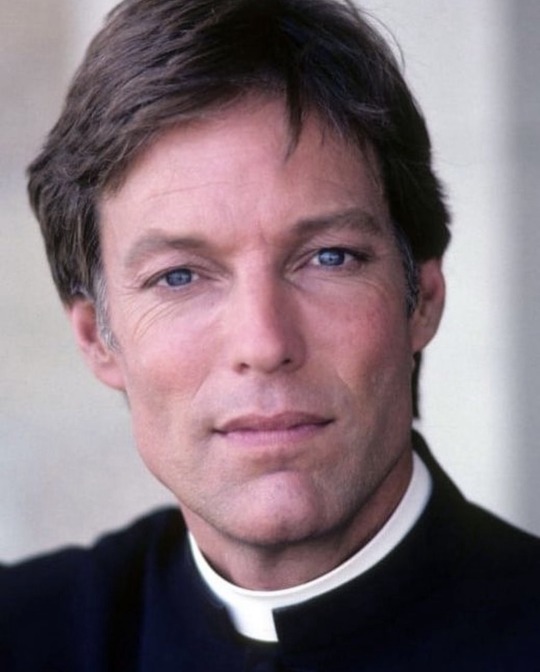
Richard Chamberlain Emmy-nominated actor and 1960s heartthrob, who rocketed to fame in the TV medical drama "Dr. Kildare" and starred in the mini-series "Shogun" and "The Thorn Birds", has died at the age of 90 💔 after suffering a stroke.
Richard Chamberlain was TV's award-winning and 'king of the miniseries, became the leading heartthrob of early 1960s television. As the impeccably handsome Dr. James Kildare, the slim, with the near-perfect Ivy-League charm and smooth, intelligent demeanour, had the distaff fans fawning unwavering over him through the series' run. He was drafted into the United States Army in December 1956 for 16 months, serving in Korea.

Chamberlain in Dr Kildare, the role which would launch him to fame Credit: Alamy
The attention Richard received was phenomenal. True to his "Prince Charming" type, he advanced into typically bland, soap-styled leads on film befitting said image, but stardom proved to be elusive.
Despite his interested in a reputation as a serious and reliable actor, did not bring him the screen fame foreseen. The public obviously and the critics saw the actor as nothing more than a television commodity.
An important dramatic role in director Richard Lester's Petulia (1968) led Richard to England, where he stayed and dared to test his acting prowess on the classical stage. With it, his personal satisfaction over image and career improved. Bravura performances as "Hamlet" (1969) and "Richard II" (1971), as well as his triumph in "The Lady's Not for Burning" (1972), won over the not-so-easy-to-impress British audiences.
And on the classier film front, he ably portrayed Octavius Caesar opposite Charlton Heston's Mark Antony and Jason Robards' Brutus in Julius Caesar (1970), composer Pyotr Ilyich Tchaikovsky in Ken Russell's grandiose The Music Lovers (1971) opposite Glenda Jackson, and Lord Byron alongside Sarah Miles in Lady Caroline Lamb (1972). While none of these three films was critical favourites, they were instrumental in helping to reshape Chamberlain's career as an actor.

Chamberlain starring in Shogun in 1980 Credit: Alamy
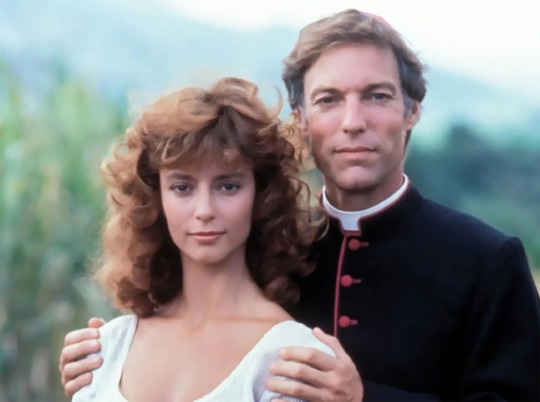
Chamberlain and Rachel Ward in The Thorn Birds in 1983 Credit: Alamy
With his new image in place, Richard felt ready to face American audiences again. While he made a triumphant Broadway debut as Reverend Shannon in "The Night of the Iguana" (1975), he also enjoyed modest box-office popularity with the action-driven adventure films The Three Musketeers (1973) as Aramis and a villainous role in The Towering Inferno (1974), and earned cult status for the Australian film The Last Wave (1977).
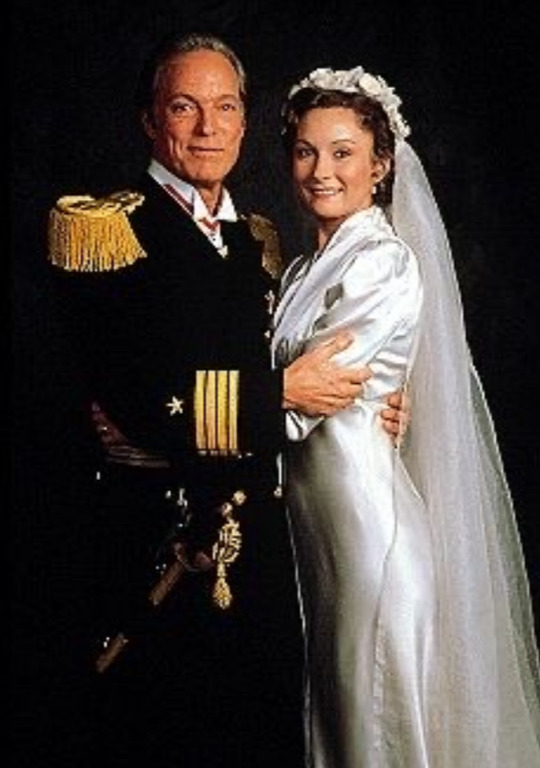
Richard Chamberlain as Captain Georg Von Trapp, and Laura Benanti as Maria Von Trapp in the 1998 Broadway Revival of "The Sound of Music".
On the television front, he became a television idol all over again (on his own terms this time) as the "King of 80s Mini-Movies". The epic storytelling of The Count of Monte-Cristo (1975), Shogun (1980) and The Thorn Birds (1983) all of which earned him Emmy nominations, placed Richard solidly on the quality star list. He won Golden Globe Awards for his starring roles in the last two miniseries mentioned.
Enormously private and having moved to Hawaii to avoid the Hollywood glare, at age 69 finally "came out" with a tell-all biography entitled "Shattered Love", in which he quite candidly discussed the anguish of hiding his homosexuality to protect his enduring matinée idol image.
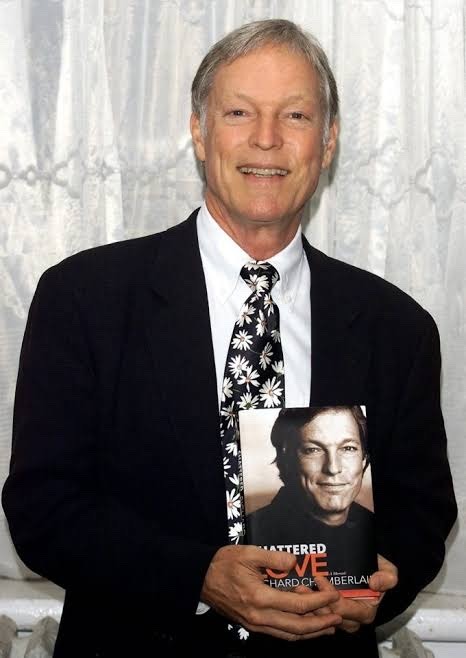
#RichardChamberlain
R.I.P. Richard Chamberlain 1934 - 2025 🥀 🖤
Posted 30th March 2025
13 notes
·
View notes
Text

Julius Lester (January 27, 1939 - January 18, 2018) was born in St. Louis, the son of a Methodist minister. He spent much of his childhood in Missouri. He graduated from Fisk University with a BA in English.
He became active in the Civil Rights movement, going to Mississippi in 1964 as part of the movement called the Mississippi Summer Project.
He began working full-time for the Student Nonviolent Coordinating Committee as head of its photography department in Atlanta.
His writing career began in 1967 when a publisher read his essay “The Angry Children of Malcolm X,” and offered him a contract to develop it into a book. The book, titled Look Out, Whitey! Black Power’s Gonna’ Get Your Mama, would be the first book to explain the term Black power and place it in the context of African American history.
He has published more than forty books, including non-fiction, children’s books, poetry, and novels. Among the awards these books have received are the Newbery Honor Medal, the Lewis Carroll Shelf Award, the National Book Award Finalist, the Boston Globe/Horn Book Award, the National Book Critics Circle Honor Book, and the New York Times Outstanding Book. His books have been translated into eight languages.
He joined the faculty of the University of Massachusetts at Amherst as a professor of African American Studies. He joined the Judaic and Near Eastern Studies Department and taught courses there and in the English and History departments until his retirement (2004). He became the only faculty member to be awarded all three of the University’s most prestigious faculty awards: The Distinguished Teacher’s Award, the Faculty Fellowship Award for Distinguished Research and Scholarship, and the Chancellor’s Medal, the University’s highest honor. The Council for Advancement and Support of Education selected him as the Massachusetts State Professor of the Year.
He served as lay religious leader of Beth El Synagogue in St. Johnsbury, Vermont. #africanhistory365 #africanexcellence
5 notes
·
View notes
Text
Thought Provoking Books & Books That Have Important Voices! Pt. 26
251. Too Bright to See by Kyle Lukoff (Banned Book/Middle-grade/Ghosts/Gender Identity/Grief/Coming Out/Mystery)
252. Read People Like A Book by Patrick King (Self Help/Human Behavior/Verbal & Nonverbal Signals/Scholarly/Tales/Psychology)
253. Wandering Son series by Takako Shimura (Realistic Manga Series/Banned Books/Trans Characters/Gender Identity/Bullying/Puberty/Slice-of-Life/Middle School Characters)
254. Junie by Erin Crosby Eckstine (Historical Fiction/Magical Realism/Historical/Civil War/Coming of Age/Adult/Historical Fantasy)
255. Zenobia July by Lisa Bunker (Middle Grade/Challenged Book/LGBT/Realistic Fiction/YA/Contemporary)
256. Freshwater by Akwaeke Emezi (Memoir/Science Fiction/Mythicism/Thriller/Madness/Trauma/Identity/Self Harm/Mix of Genres)
257. When Dad Killed Mom by Julius Lester (YA/Challenged Book/Fiction/Domestic Violence/Trauma/Family/Social Themes/Family Dynamics)
258. Watchmen comics by Alan Moore (Graphic Novel/Comic/Fiction/Superheroes/Dystopian/Historical Fiction/Cold War)
259. Top 250 LGBTQ Books for Teens: Coming Out, Being Out, and the Search for Community by Michael Cart (Challenged Book/LGBT/Nonfiction)
260. Lonely Castle in the Mirror by Mizuki Tsujimura (Magical Realism/Japanese Fantasy/Friendship/Emotions/Mental Health/Bullying/YA/Contemporary)
#the random things#books#books and libraries#books to read#bookworm#freedom#freedom to read#important#books and reading#important writings#bookshop#banned books#books & libraries#books and literature#booksbooksbooks#bookshelf#bookstagram#bookblr#reading#booktok#bookish#feed your soul#feed your head#books with important themes#make a difference#make a change#challenged books#reading challenge#bookstore#book lovers
5 notes
·
View notes